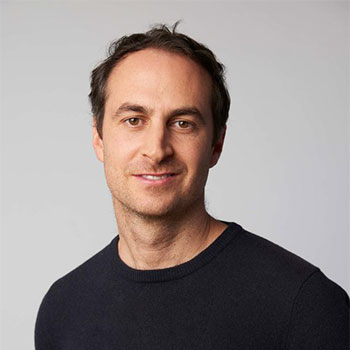
In Conversation with Andrew Apostola

Tell us about your business, Portable?
Portable is a design innovation company based in Melbourne. We’re a purpose driven group of designers, technologists, producers and researchers looking to make change — there’s just over 40 of us. Our mission is to seek out areas of policy failure and social need and use design and technology to make impactful change. Over the years we have been able to do this in areas of justice, mental health, death and ageing, but there are always problems to solve and we’re active in wide range of areas. You can see our work and I suggest downloading some of our reports we produce to get a sense of the scope of work that we do.
Tell us about yourself.
Andrew Apostola is the co-founder of Portable, a digital innovation and design company founded in Melbourne, Australia. Portable uses design and technology to help organisations transform the way in which they deliver services, particularly in the areas of justice, healthcare, education and government. In 2017 he became Managing Director of Arnsdorf, a modern womenswear retailer redefining online commerce in Australia, guiding its strategy and relaunch in 2017. In the same year he joined the board of Preshil, one of Australia’s most progressive schools, where he helps on digital strategy in an educational context. He is also a judge of the Webby Awards in New York, the “Oscars for Online”.
Andrew’s main areas of focus are in justice, government, education and retail and he works actively in these areas through his various roles. He is the co-founder of YourCase, a digital product that helps victims of family violence navigate the justice sector and is working more broadly with a range of stakeholders to reshape the delivery of justice across Australia. He is the author of a range of publications, including Taking Back Retail (2012), which looks at how brands can move into the digital age, Hacking the Bureaucracy (2016), a guide to government innovation and Redesigning Work (2017), a report into how design can respond to the changing workforce. In 2017 he authored and presented a new approach entitled the Principles of Data Driven Design as part of Melbourne Design Week.
How has Portable's way of thinking had an impact on the creative industry?
There is a view that as an agency you can’t really control the work that comes to you. For many, you just take the work that you get and build up a business that way. About five years ago we decided to remove that mental barrier and explore why we work and what work we actually wanted to be doing. For us that meant working in the purpose space and by that I mean working on projects with partners that look to resolve big, hard to solve problems. Today 100% of our work in the for purpose space. It actually took us up until the end of last year to gracefully say goodbye to all of our “non-purpose” projects. We believe that today, Portable acts as a model to other individuals and organisations, providing a path towards values-driven thinking.
How has Design Thinking changed over the years and where do you see it going?
Design Thinking hasn’t changed much since its inception. It’s an incredibly useful tool for people to solve really gnarly problems and we employ it as a central part of our methodology. Over the past three years we’ve seen more people using it, which is great to see. But that’s not to say that everyone has been using it the right way though. You know the term ‘greenwashing’, where organisations market themselves as environmentally sound, however their processes are far from that? Well, in our industry we’ve got the same ‘design-thinking-washing’ going on where a lot of organisations want to say they’re employing design thinking and human centred design, however they are just bundling up their own existing processes and expressing it as the real deal. You get that in any industry, it’s really not that unique. But we see a lot of that in our industry now and it’s a challenge for the practitioners we have to push again those types of projects.
Tell us what you are currently working on?
We’ve just released our work into death and ageing (you can download our report which is something we are very interested in at the moment. We’re also doing a lot of work in the justice space with our product Courtsight which helps people navigate courts, as well as Settle an AI product that helps resolve disputes.
What would your advice be to a Service Designer looking to break into the industry in 2019?
Firstly, go and get some training from somewhere so you can sharpen up your skills and learnt the practice. After that (or simultaneously), go out into the world and try and solve some real problems. There are so many services that you can observe that don’t just make sense. Go and document those services and see if you gain some insights. Most people who come to us who are junior don’t have any high fidelity work to back up their experience, so my advice is to go out there, find a problem, see if you can address it, and then document it as part of a case study or as part of your folio.
Share it around…






